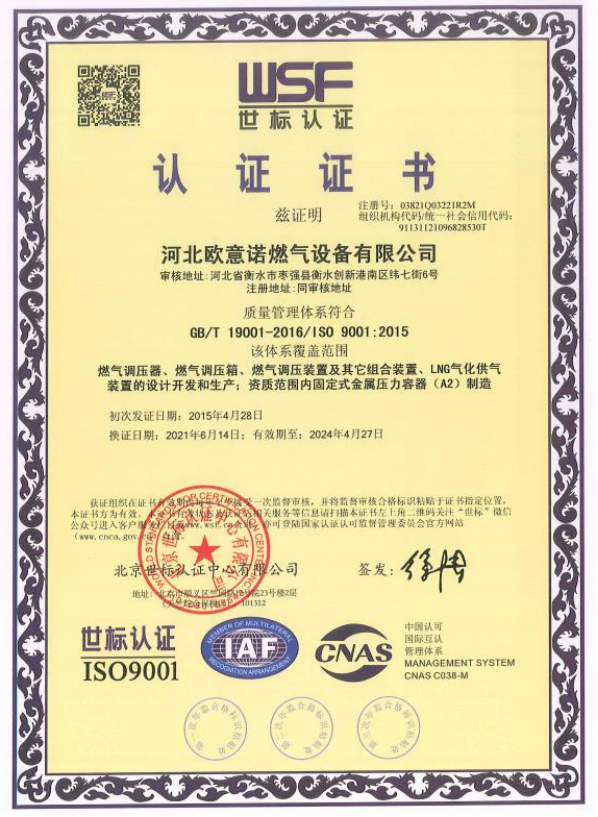
Oct . 22, 2024 10:57
Back to list
Pressure Pipe Design and Applications for Efficient Fluid Transportation
Understanding Pressure Pipes Essential Components in Fluid Transportation
In various industrial sectors, the transportation of fluids such as water, oil, and gas plays a crucial role in ensuring operational efficiency. An indispensable technology that facilitates this fluid transfer is pressure pipes. Pressure pipes are specially designed to withstand high internal pressures while ensuring the safe and efficient movement of substances. This article delves into the key aspects of pressure pipes, their applications, materials, and the importance of proper maintenance.
What Are Pressure Pipes?
Pressure pipes are cylindrical tubes constructed to transport fluids under pressure. Unlike regular pipes, which might be used in gravity-fed systems, pressure pipes are engineered to handle substantial forces exerted by the fluid they convey. These pipes are commonly utilized in various applications, including municipal water supply systems, irrigation, sewage systems, and oil and gas pipelines.
Types of Pressure Pipes
There are several types of pressure pipes, categorized mainly by their material composition. Here are some of the most commonly used materials
1. PVC (Polyvinyl Chloride) PVC pipes are lightweight, resistant to corrosion and chemical damage, making them ideal for water supply and drainage systems. They are often used in low to medium-pressure applications.
2. HDPE (High-Density Polyethylene) Known for its flexibility and toughness, HDPE is an excellent choice for high-pressure applications. It is widely used in gas distribution and water supply systems. Additionally, HDPE pipes are resistant to abrasion and have a long service life.
3. Steel Steel pressure pipes are typically used in high-pressure applications, especially in the oil and gas industry. They offer exceptional strength and rigidity; however, they require protective coatings to prevent rusting and corrosion.
4. Ductile Iron Often used for water distribution, ductile iron pipes are robust and have a high resistance to impact and pressure. This type of pipe is especially valued for its longevity and reliability.
.
Pressure pipes are utilized in a myriad of applications across different industries
أنبوب الضغط

- Water Supply Systems Pressure pipes are essential in municipal water systems, where they transport treated water from treatment plants to homes and businesses.
- Irrigation In agriculture, pressure pipes facilitate the efficient distribution of water in irrigation systems, maximizing water use for crop production.
- Oil and Gas Transportation High-pressure pipelines are vital in the oil and gas industry for transporting crude oil, natural gas, and refined products over long distances.
- Wastewater Management Pressure pipes are crucial in sewage systems to transport wastewater from homes to treatment facilities.
Importance of Maintenance
Maintaining pressure pipes is paramount to ensuring their longevity and operational efficiency. Regular inspections help in identifying potential issues such as leaks, corrosion, or blockages. Some key maintenance practices include
1. Regular Inspections Conducting frequent visual and instrumented inspections can help detect early signs of wear and tear.
2. Pressure Testing Periodic pressure tests ensure the integrity of the pipes and identify any weaknesses that may compromise safety.
3. Cleaning and Flushing Accumulation of debris can obstruct flow; therefore, regular cleaning is essential. Flushing systems can help remove built-up materials.
4. Repair and Replacement Promptly addressing repairs to small leaks can prevent them from developing into larger, more costly problems. Replacing aging pipes is crucial for maintaining system efficiency.
Conclusion
Pressure pipes are vital components in the infrastructure that supports our modern way of life. Their ability to transport fluids safely and efficiently under high pressures makes them invaluable in various applications from household water supply to industrial oil and gas transportation. Ensuring the integrity and proper functioning of pressure pipes through regular maintenance is crucial in preventing failures that could lead to significant operational disruptions and safety hazards. As industries continue to evolve and expand, the significance of pressure pipes will only continue to grow, making an understanding of their properties and maintenance essential for those involved in fluid transportation.
Latest news
-
Safety Valve Spring-Loaded Design Overpressure ProtectionNewsJul.25,2025
-
Precision Voltage Regulator AC5 Accuracy Grade PerformanceNewsJul.25,2025
-
Natural Gas Pressure Regulating Skid Industrial Pipeline ApplicationsNewsJul.25,2025
-
Natural Gas Filter Stainless Steel Mesh Element DesignNewsJul.25,2025
-
Gas Pressure Regulator Valve Direct-Acting Spring-Loaded DesignNewsJul.25,2025
-
Decompression Equipment Multi-Stage Heat Exchange System DesignNewsJul.25,2025

